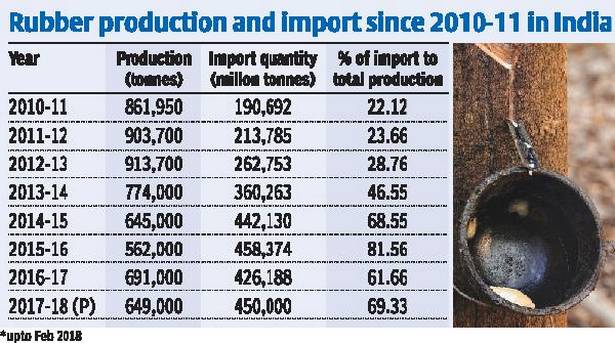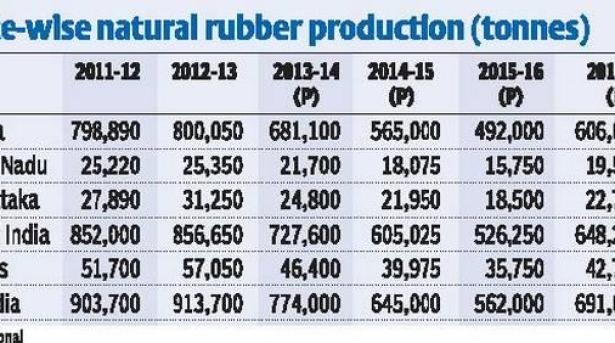Growers should be allowed to tap market potential
Minimum import price on rubber is needed to avoid dumping, say stakeholders citing a serious drop in production triggered by imports and low prices.
Quoting data at a meeting of a Task Force in Kochi, growers and processors pointed out that imports were increasing even during high cropping months of September-February, This underlines the need for a clear policy on how much, when and what to import. “It is not only the quantum of imports, but also timing that created the problem”, they said. Rubber Board figures also revealed that imports had grown 10 per cent to an all time high of 469,433 tonnes 2017-18 due to favourable price , rising consumption and less than expected production.

Santhosh Kumar, Senior VP, Harrisons Malayalam Ltd, who participated in the meeting told Business Line that they have strongly argued for a minimum import price for rubber along the lines for pepper. The price of domestic rubber should not be less than the cost of production, which is now hovering at ₹170/kg. There was also demand to utilise the import duty collected for supporting rubber cultivation by extending price support and replanting subsidies. Currently 40 per cent of the Indian consumption is being imported and further imports would adversely affect the growers’ interests.

Admitting that rubber imports had been consistently increasing from 2008-09 to 2017-18, Rubber Board Chairman and Executive Director, MK Shanmuga Sundaram said at a different function that imports are projected at 450,000 tonnes in 2018-19. The production during January-March 2018 was 10 per cent lower mainly on account of intermittent rains and relatively low rubber prices. The projected NR production is considerably lower as compared to the production potential, he said addressing the 176th meeting of the Rubber Board. However, the production in 2018-19 is projected at 730,000 tonnes with a growth of 5.2 per cent while consumption is projected at 1.2 million tonnes , with an increase of 8 per cent, he added.
According to Ajith B.K., Secretary, of Association of Planters of Kerala, imports should be allowed to fill the gap between the domestic consumption and production. But the government should impose safe guard duty to protect the interest of growers.
There should be a separate Ministry for plantation crops like other South East Asian nations and the Task Force should initiate a “Grow in India” campaign.



























